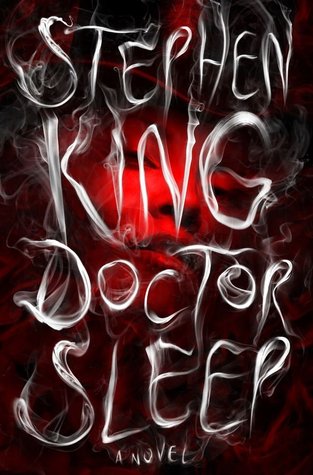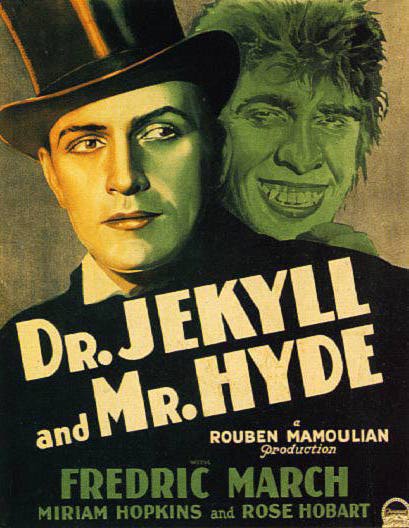 Warning: BAD guitar playing ahead. Really bad.
Warning: BAD guitar playing ahead. Really bad.
I think this might be the last generation of traditional guitar rigs (meaning a tube amp, a 4×12, and a microphone). Digital amps have gone from unconvincing crap to a real alternative for people who care about tone. The only downside at the moment is that they all have metal on the brain – that is, there aren’t many good amp sims for people who understand that Spinal Tap is meant to be a joke.
Free, decent emulations currently exist for the Bogner Ecstasy (LePou’s LeXTac), the Mesa Boogie Single Rectifier (LePou’s LeCTo), the Peavey 5150 (Nick Crow’s 8505, LePou’s X50), the ENGL Powerball (Lepou’s Le456), the ENGL e530 (LePou’s TSE X30), and some weird hybrid digital amps, like LePou’s HyBrit (which is based off a combination of Marshall SLP59 and JCM800 circuitry), and the (awesome sounding) LeGioN, which was derived from Engl’s general approach to guitar amps.
See the common thread? Except for the Ecstasy and (perhaps) the HyBrit, these are all high-gain amps. If you want to play an iconic low-gain amp like the Vox AC30 on your computer, you’re shit out of luck…unless there’s some commercial option I don’t know about. Nobody seems to care about emulating bass amps, either.
Regardless, I tried to recreate some tones that are a bit more diverse than Meshuggah or Periphery. These were all recorded with an ESP LTD guitar with a DiMarzio X2N in the bridge, and then into some free amp sims and impulse responses. I haven’t even made an attempt to get into the same tuning as these songs, which affects the tone a bit. And some of them were meant to be quad-tracked, but I only dual-tracked them.
Motley Crue tone:
https://dl.dropboxusercontent.com/u/25331585/motleycruetone-001.mp3
Forget Slash. The holy trinity of 80s hair metal guitarists is Eddie Van Halen, Nuno Bettencourt, and Mick Mars. Mars’s tone is a logical progression of Aerosmith’s and on Dr Feelgood it sounds really fucking excellent. That record, by the way, was responsible for Metallica hiring Bob Rock to produce their albums from 1991-2003. This supports my theory that every metal musician is at most six degrees separate from St Anger.
Generic 90s punk rock tone (think Green Day or Bad Religion):
https://dl.dropboxusercontent.com/u/25331585/90spunkrocktone.mp3
Billie Joe Armstrong used a modified Marshall 1959 SLP when recording Dookie. He and Rob Cavallo went for a really dry and sterile sound on that album, but I put some reverb on this. It didn’t sound full enough without it.
Linkin Park Hybrid Theory tone
https://dl.dropboxusercontent.com/u/25331585/linkinpark-001.mp3
Whether you think Linkin Park is a cool band or purveyors of a formula that was already old when the eldest member’s fingers were developing in the womb, I really like Brad Delson’s tone. Crushing, yet strangely organic and alive. Sort of a middle road between “scratchy, underproduced, and annoying” (see: Slipknot, Korn), and “digitally processed into oblivion” (see: Rammstein).
Nine Inch Nail’s Broken Tone
https://dl.dropboxusercontent.com/u/25331585/nintone.mp3
This is the guitar part from “Pinion”, which I like for its pulsing, lurching power, and its example of what can be done with chromatic notes. Trent Reznor is famous as a producer, but he’s been known to do interesting things with guitars from time to time. He eschewed tradition and did some really lo-fi things for NIN’s early work (like plugging a Zoom distortion pedal directly into the mixing desk). On the Broken EP, I believe he used he used a Marshall JMP-1. To recreate his sound, I used an amp sim with no cab impulse.
No Comments »
 Doctor Sleep involves an ancient train running again. In a way that’s a metaphor for the whole thing. King’s seminal novel The Shining – first published in 1977 – finally has a sequel. Two questions arise: is Doctor Sleep a good book? And is it a good sequel to the Shining?
Doctor Sleep involves an ancient train running again. In a way that’s a metaphor for the whole thing. King’s seminal novel The Shining – first published in 1977 – finally has a sequel. Two questions arise: is Doctor Sleep a good book? And is it a good sequel to the Shining?
Let’s face it, The Shining is one massive locomotive. In a way, it’s not even a Stephen King creation. It’s now also a Stanley Kubrick creation, and a Simpsons creation, and a creation of every single person who’s adapted it, parodied it, referenced it, ripped it off, etc. The Shining is such a ubiquitous part of our culture that, ironically, we’ve destroyed much of its value as a horror novel. Getting scared by the Shining now seems like getting moved by “Luke, I am your father.”
Jack Torrance’s psychic son Danny has grown into a man haunted by events at the Overlook Hotel. He drifts around the country, drinking and getting into bar fights, until he joins Alcoholics Anonymous and finds work at a nursing home. There, he finally finds a positive use for his “shining” ability…comforting the dying as they pass over to the other side. People start to call him Doctor Sleep.
He also meets a young girl called Abra Stone, and realises that she has the most powerful “shining” ability he’s ever seen. She can levitate a piece of chalk and write messages on a blackboard miles away. She can potentially kill with her mind. Unfortunately, a shadowy group of individuals called The True Knot has also become aware of her abilities. The True Knot are like the Manson family mixed with vampires (a town called Salem’s Lot gets name-checked, by the way), except instead of blood, they feed on “shine”.
This isn’t the same kind of book as the Shining, which took place almost entirely at snowbound hotel. There’s lots of travel here, lots of movement from place to place (and time to time). That might seem like a small detail, but the first book got a lot of mileage out of its feeling of claustrophobia and confinement, and if that’s what you liked about the Shining, you won’t find it here. Doctor Sleep is The Shining with a drivers license and a lot of tollbooth ticket stubs.
There’s a lot more violence, but also a lot more humanity and character development. Again, that might be good or bad. What really worked about the The Shining was its coldness, and how it felt like Jack Torrance was losing his humanity. Here, even the villains unambiguously think they’re in the right, and they have fairly solid reasons for doing so.
Some parts really work. The early scenes with Danny and Mr Halloran, the deathbed scenes (I got strong nostalgia for the Green Mile reading Doctor Sleep), the way the True Knot are introduced. Other parts aren’t as strong…often because King suddenly starts trying to force connections to the Shining. Midway through the story he remembers “hey, didn’t Danny have an imaginary friend called Tony?”, and then we get Tony jammed into the plot so aggressively King might as well be using a shoehorn.
And there’s a few hideously boring scenes where we meet Abra Stone’s Italian family. This is the first time (from memory) that King has written an Italian family that isn’t made up of gangsters. Frankly, if this is the best he can do, he should go back to making us an offer we can’t refuse.
So does it work as a sequel? Maybe it’s better to ask, does it want to work as a sequel? Doctor Sleep is really its own thing, and it’s not bad for what it is. King’s been in gradual recovery mode since the early to mid noughties, and this continues the trend. You’ll find a lot to like here, if you’re willing to leave the Overlook behind.
No Comments »
 Reader’s advisory: old news + I was not involved.
Reader’s advisory: old news + I was not involved.
A few months ago, a promising science fiction author called Benjanun Sriduangkaew was exposed as the secret identity of notorious troll/cyberbully Requires Hate (who has also gone by the name of Winterfox, ACrackedMoon, and several others).
I was a regular reader of Requires Hate. I actually planned to submit one of my books for a Requires Hate review, but I didn’t have any ready in time. Everyone’s shocked that this person gained so much traction in “da scene”. Nobody can see the truth: that the problem lies with them, and the community they created.
Over the past few years, we’ve seen the rise of the “social justice” movement, which combats sexism, racism, and oppression (or thinks it does). For years, it was a harmless tumor, confined to places like LiveJournal and SomethingAwful. But Tumblr and Twitter shot it full of steroids, and it has metastasized into a proud, fierce, non-gender-binary cancer.
In CS Lewis’s city of Tashbaan, the less important bow and scrape for the more important. In the social justice, the less oppressed bow and scrape for the more oppressed. There’s not much more too it. If you have light skin, or a penis, disagreement with a minority (or someone who claims they’re a minority) is very unwise, as you are silencing them, erasing them, forcing them out of the discourse, denying their lived experiences, et cetera.
Obviously, these kinds of communities are very vulnerable to sociopaths, and manipulators, and Requires Hate leveraged her Oppressed Person status to the full. She was a woman, she was queer, and she was Asian. That’s a pretty strong hand. Maybe the ace-high straight Social Justice Poker. You had to listen to her, because you were privileged and she was not.
One of the victims of Requires Hate’s taunting was Kari Sperring, who apparently attempted suicide because of it. I find that…unhealthy. Abnormal. Why would you let an internet troll have that much power over you? I think it’s because of social justice. Sperring wasn’t able to brush those comments off, because Requires Hate outranked her. Arguing with a member of THREE marginalised groups? No way. That would have made her a bad person, an oppressor. Only one way out…the medicine cabinet.
4chan wish they had a trolling thermonuke this powerful. All they can do is leak your naked selfies.
Hopefully people will have learned a lesson from Requires Hate…that societies should not act like the saddest, most downtrodden class of saps deserves to be running things. There’s men who volunteer at rape shelters and women who’s biggest concern is shopping for oversized sunglasses. And being black – even an actually oppressed black – doesn’t mean you know a damn thing about racism, just as getting shot doesn’t confer understanding of ballistics or catching a cold doesn’t make you an expert on immunology. These are complicated topics, and I want to hear smart viewpoints, wherever they come from, not “lived-in” viewpoints. The idea is got-a-cool-toy-banned-by-rectally-inserting-it grade stupid.
As for Benjanun Sriduangkaew, I wish she’d stuck around. She got busted, posted a groveling apology, and is now keeping a low profile. I think she should have stuck to her guns. “Yeah, I was Requires Hate, and here’s news: I regret nothing. You’re trash, your favorite books suck, and if that makes you try to kill yourself, take a fucking seat. You haven’t seen anything yet.”
No Comments »
 Warning: BAD guitar playing ahead. Really bad.
Warning: BAD guitar playing ahead. Really bad.

